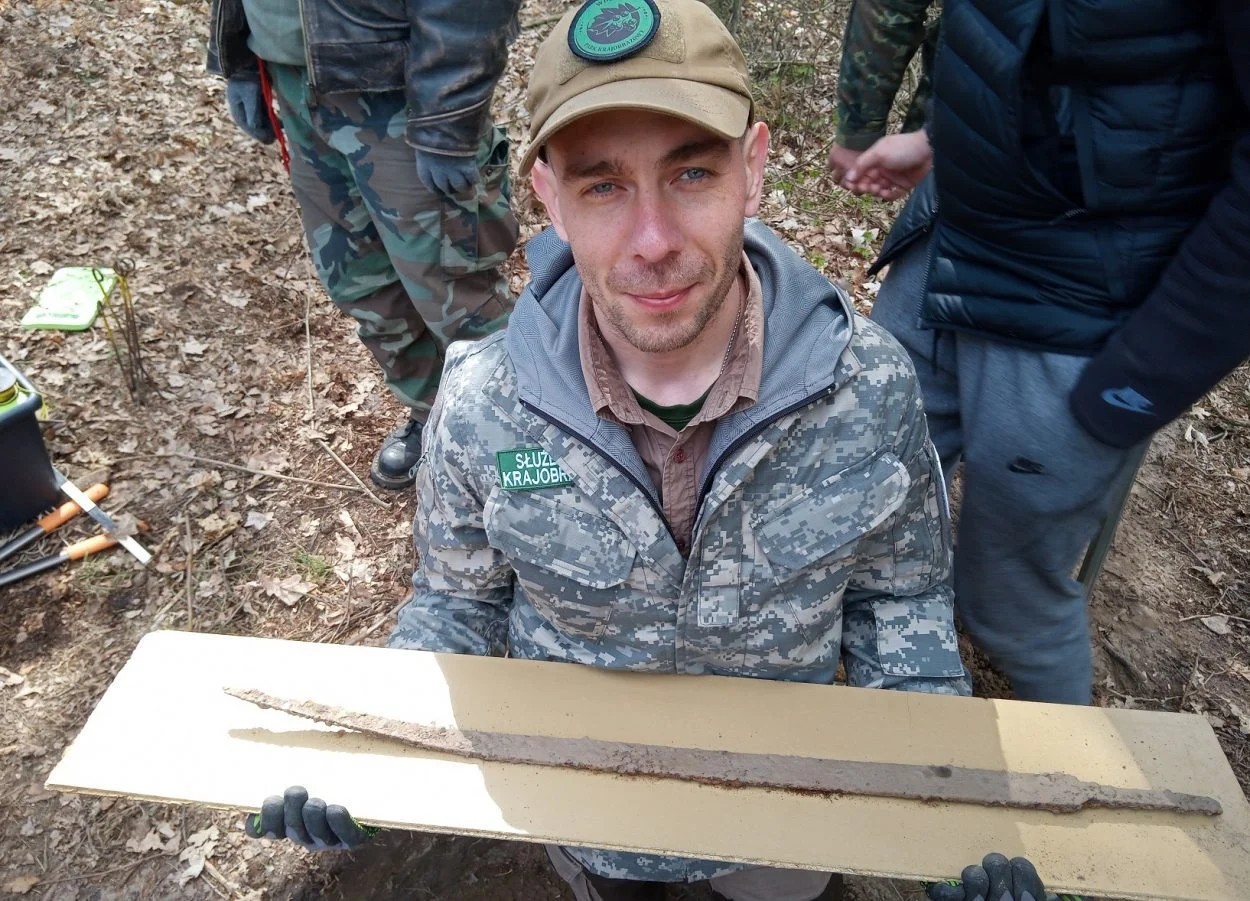Archaeologists conducting research in the Wdecki Landscape Park, located in the Kujawsko-Pomorskie Voivodeship of Poland have unearthed a rare langsax long knife, with possible Viking origins.
The knife was discovered by chance, as researchers were searching for one of the lost battlefield sites from the Polish-Pomeranian conflict of AD 1091, where Duke Władysław I Herman of Poland attempted to annex the region of Pomerania.
Archaeologists Mateusz Sosnowski, who participates and coordinates research on behalf of the Wdecki Landscape Park described the blade as a “loose find”, as there were no cultural layers in situ to indicate a wider connection with the surroundings.
Dr. Piotr Pranke from the Department of History of Scandinavia and Central and Eastern Europe at the Nicolaus Copernicus University in Toruń, suggested that the long knife was an extremely rare Norwegian langsax that dates from around the 8th century AD.

The long knife measures 90 cm in total length, with an 80 cm blade. “It is a weapon of impressive size for a long knife, which could easily measure up against double-edged swords from that period” – says Sosnowski.
An initial inspection shows that the long knife is in almost perfect condition, with only the tip of the blade being partially bent. “We intend to carry out detailed metallographic tests (the study of the microstructure of all types of metallic alloys) that may allow us to gain additional knowledge about this unique specimen of a weapon” – announces Sosnowski.
Header Image Credit : Mateusz Sosnowski





